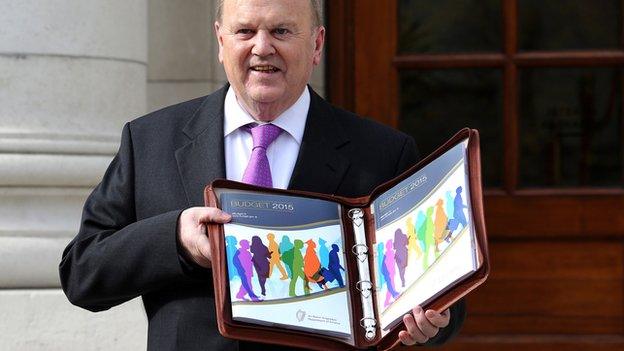Celtic Tiger: Signs of recovery after Ireland's economic crash
- Published
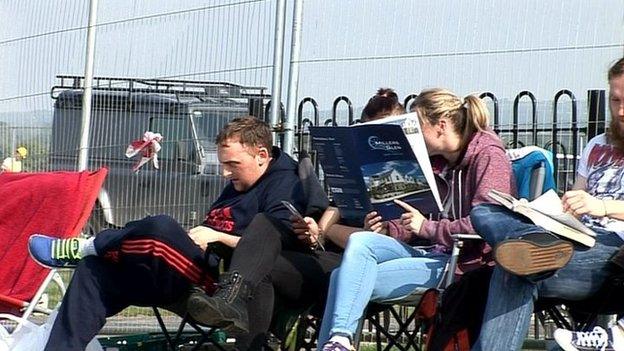
People have been queuing to buy houses and apartments in a new development in Dublin
The Republic of Ireland emerged from its EU-International Monetary Fund bailout late last year and there are encouraging signs that a corner has been turned.
It is a warm September day in Swords, not far from Dublin Airport.
People are sitting in deck chairs queuing to buy houses and apartments in a new development, a sight not seen since the end of the Celtic Tiger economy and the 2008 crash.
Some have already spent several nights there and they do not want to talk to the media.
But for one woman, Derry-Anne Morgan, it is a scene that fills her with dread.
"I just don't like seeing this portrayed as though they're all coming out again as happened before," she says.
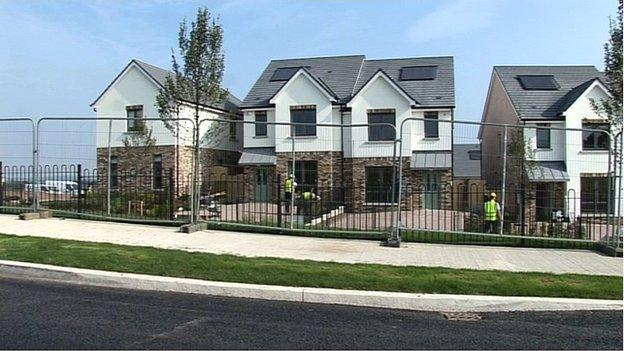
The homes in Swords have attracted a lot of interest
"It smacks of the old bidding and gazumping. And it seems as if we haven't learnt any lessons from before."
Perhaps, though, people have learned as the development did not sell out.
It was over-priced property, by about 50%, and the collapsing banks that brought the Republic of Ireland to its economic knees.
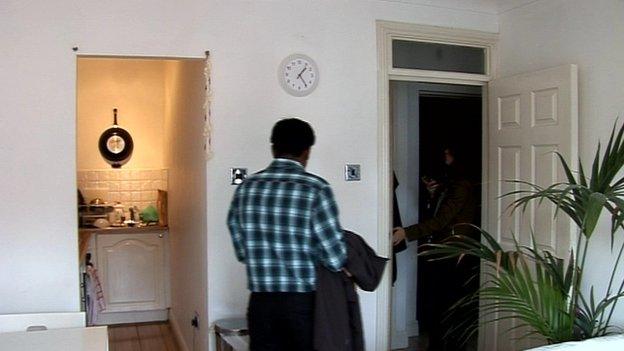
About 20 people came to look at a one-bedroom apartment on the River Liffey
In a small, busy office in the centre of Dublin, near the iconic Ha'penny Bridge over the River Liffey, Gavan Russell is trying to sell and rent property.
He believes that with house prices up by a quarter in a year in the city, a corner has been turned.
"I do see a recovery, rents have appreciated over the last 12 months, up by 15%," he said.
Staggered viewings
"Capital sales are up by 25% in Dublin. It's spreading to other cities. It's starting to slow down a little bit now, which is probably a good thing."
It is lunchtime near the River Liffey and almost 20 people have come over staggered times to look at a one-bedroom apartment on the market at 950 euros (£755) a month.
Nearly all are young and from abroad and many are in the city to work in the hi-tech industries.
Among them, Frenchman Jeremie Pierret, who has also lived in Germany.
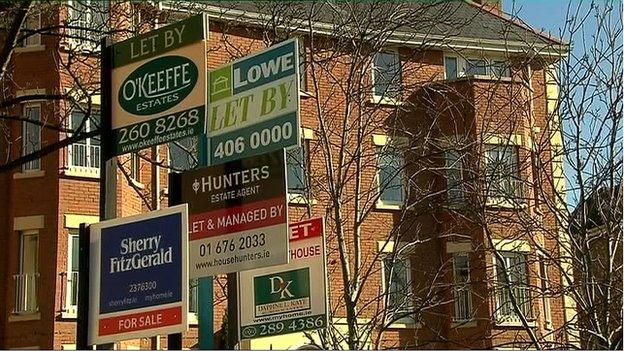
House prices are said to be up by a quarter in Dublin in the past year
He said: "Prices are high compared to what I know from the south of France and Berlin."
Andrea Filipo from Florence said prices are in line with those in Italy.
Joel Buckle from York in England said: "Once you view an apartment it seems to go straight away because everyone wants it."
But Tia Kalinic from Croatia describes the situation in Dublin as crazy.
"If there is a viewing, you are there with 20 or so people fighting for the apartment," she said.
"The problem is if you want to try to rent it, you have to decide within a few hours."
The many people from outside Ireland who work in Dublin is evidence that the Irish economy is also recovering.
There are some predictions that it could grow by almost 8% over the next 12 months.
But while the multi-national sector is thriving, it is a slightly different story for small and medium-sized enterprises.
That caution is shared by Dan O'Brien of the Irish Independent newspaper.
"The Irish Republic's economy has the capacity to grow a little bit more strongly than the UK or continental countries," he said.
"So, there is the possibility, and only the possibility, that the economy can grow at a decent clip over the next few years. But economies are really unpredictable."
So, the consensus seems to be the Republic of Ireland's economy is set to grow.
But with high debt levels, both personal and public, and banks still not lending as much as many would like, it is far too soon to talk of a Celtic phoenix rising from the ashes of the Tiger's bubble years.
- Published13 December 2022
- Published26 September 2014
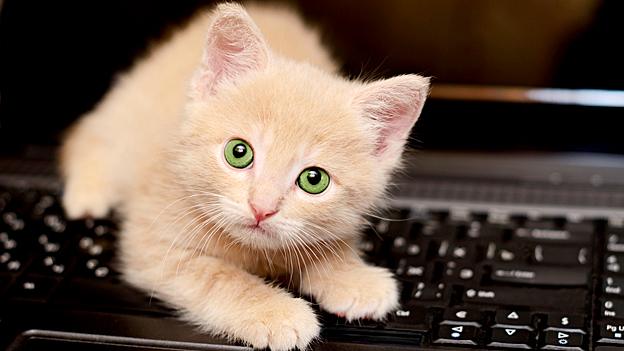
- Published14 October 2014
